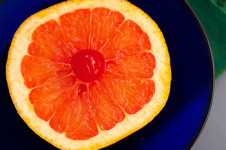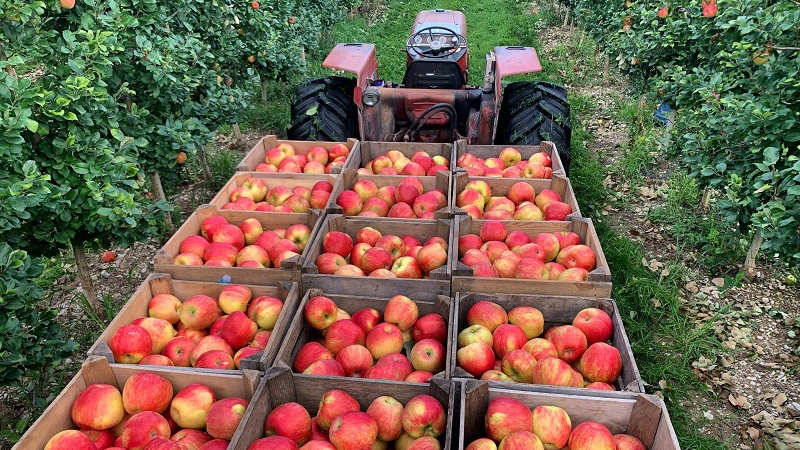Scientists Hone In On Medication-Safe Grapefruit

According to Fred Gmitter, a University of Florida citrus breeder, the quest to develop a grapefruit hybrid that will not interact with medication has taken a step forward, as researchers pinpoint compounds most responsible for the problem. The latest data were published in the December 2012 issue of the journal Xenobiotica.
Scientists have been aware of the so-called “grapefruit juice effect” since 1989. Compounds in the fruit called furanocoumarins inhibit the action of an enzyme that breaks down certain medications in the human digestive system. A recent report warned the list of prescription medications with potential harmful interactions is much larger than first thought.
The phenomenon poses a health risk because it can produce unexpectedly high levels of these medications in a patient’s bloodstream. Doctors, pharmacists, and prescription drug labels warn patients to avoid grapefruit and related products under these circumstances.
Gmitter, a faculty member at UF’s Citrus Research and Education Center in Lake Alfred, is part of a team working to address the problem by developing a hybrid between grapefruit and selected varieties of pummelo that have been shown to have low furanocoumarin content and can transmit the trait to their offspring.
In the current study, researchers investigated the effects of furanocoumarin compounds, testing each one to determine the amount required to slow the enzyme reaction by 50%. The results showed that a handful of furanocoumarins had the strongest effect.
Juice samples from 40 different hybrids and their parents were tested directly for their overall effect on enzyme activity, and one of the selected hybrids approved for impending release, known as UF 914, was among the samples with the lowest effect.
Gmitter said further study is needed to learn how low furanocoumarin levels must be to reduce the interaction risk.
Other members of the research team included David Greenblatt, Yanli Zhao, Michael Hanley and Jerold Harmatz of Tufts University School of Medicine and Tufts Medical Center in Boston; Chunxian Chen of the Lake Alfred center and Paul Cancalon of the Florida Department of Citrus in Lake Alfred.










